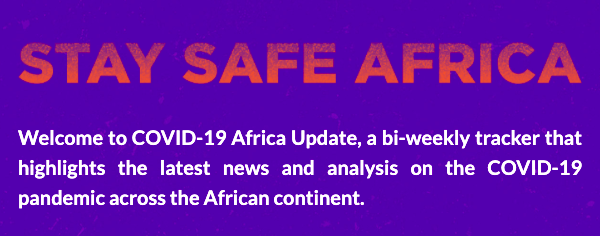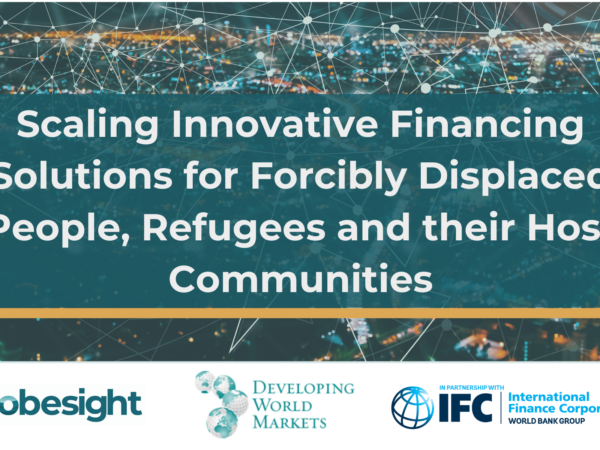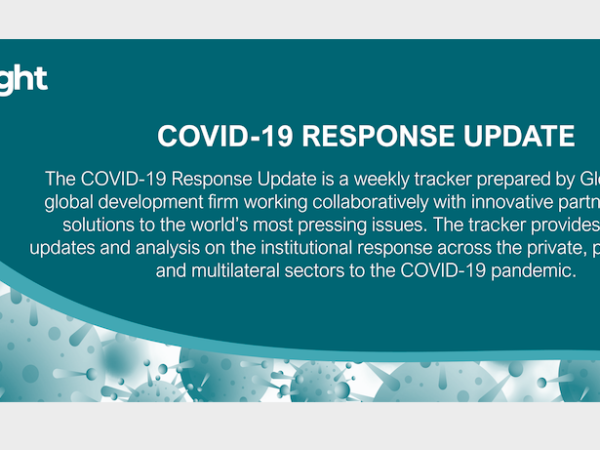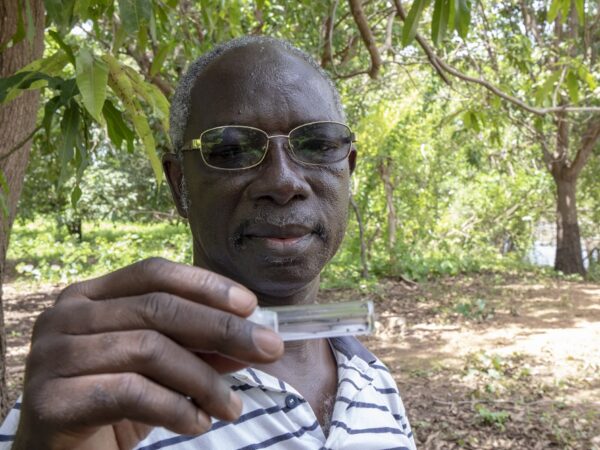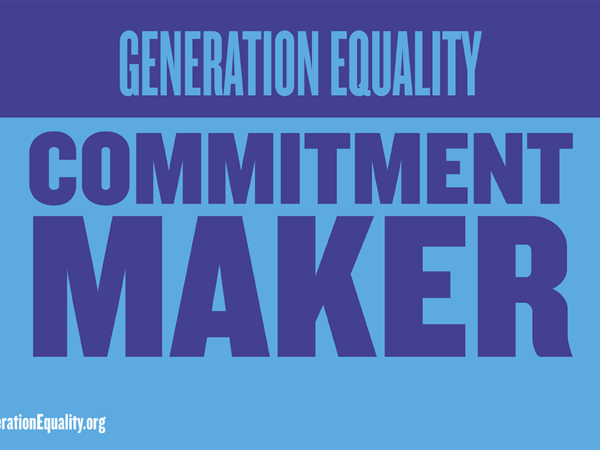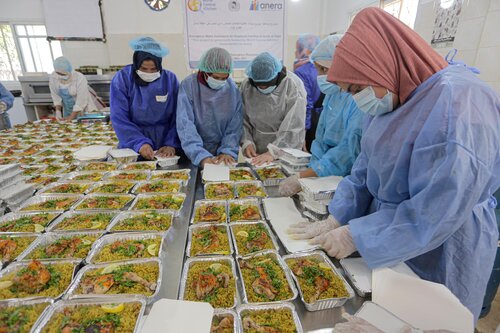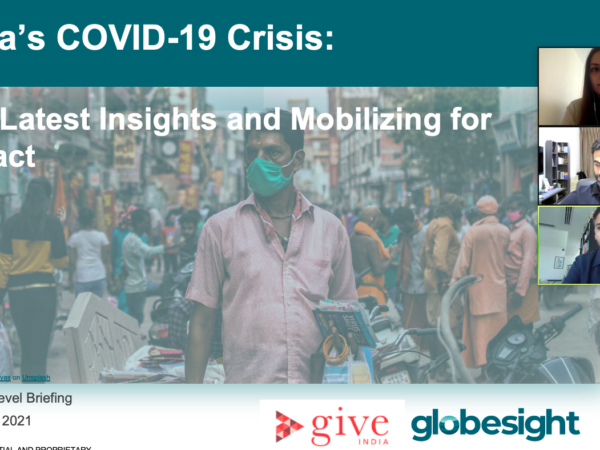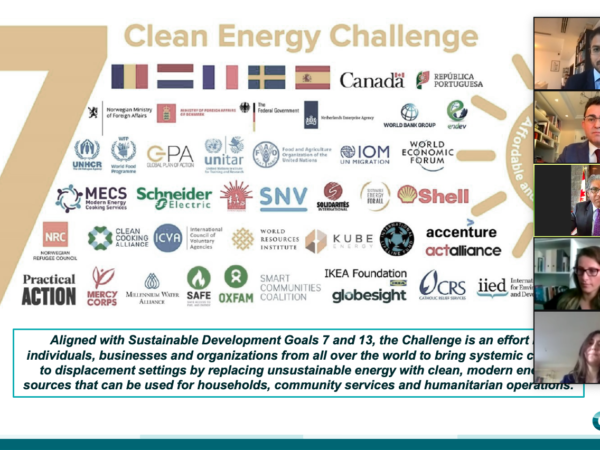Proceeds from the donation will go towards ending river blindness and lymphatic filariasis in vulnerable communities
Globesight has donated $100,000 to The Reach Campaign, an awareness and fundraising initiative, which aims to end two neglected tropical diseases (NTDs), river blindness and lymphatic filariasis.
River blindness and lymphatic filariasis disproportionately affect the world’s poorest people. Over 200 million people globally require treatment for river blindness, one of the leading causes of preventable blindness, while over 850 million people are at risk of lymphatic filariasis.
Proceeds from The Reach Campaign go towards the Reaching the Last Mile Fund (RLMF), which offers a proof of concept for the elimination of the two diseases in Sub-Saharan Africa. Administered by the END Fund, RLMF is a 10-year, $100 million USD initiative launched in 2017 by His Highness Sheikh Mohamed bin Zayed Al Nahyan, Crown Prince of Abu Dhabi, and several supporters including The Bill & Melinda Gates Foundation.
The RLMF delivers preventative treatment for NTDs and focuses on ways to accelerate progress towards elimination – from investing in disease mapping efforts, to supporting advanced lab facilities and cross-border collaborations.
Globesight’s donation represents the first contribution as part of the Reach Giving Circle, which consists of a collection of philanthropists who are dedicated to ending NTDs and empowering people to live healthy and dignified lives. Their generosity advances the work of the RLMF, which aims to free the next generation of NTDs. A $100,000 contribution can either protect 200,000 people from contracting river blindness and lymphatic filariasis for a full year or 3,000 people over their entire life from the aforementioned NTDs.
Taufiq Rahim, Globesight President, said: “We are proud to be supporting Reach through this commitment at a time when the world’s attention and funding for fighting to end neglected tropical diseases is under threat. It is also important for the private sector to step up and we hope that our contribution to the Reach reinforces that call to action.”
Nassar Al Mubarak, Managing Director of The Reach Campaign, said: “We are thankful for Globesight’s contribution to The Reach Campaign – their generosity advances our efforts and ultimately helps some of the most vulnerable populations across the globe.
“NTDs affect around 1.5 billion people worldwide – these diseases are not only preventable, but eliminating them will have widespread benefits amongst communities. Often, the children of adults who have contracted one of the diseases will have to drop out of school to become primary caregivers, impacting the entire family and trapping families in a cycle of poverty. Our hope is that through eliminating them, we can empower some of the most vulnerable communities to live a healthier and more productive life.”
With headquarters in the US and UAE, Globesight aims to advance meaningful impact for a more just, decent, equal and inclusive world. The organization focuses on policy, platform and partnership development to help scale impact around the world through transformative solutions. Recently, Globesight has been more direct in its own philanthropy from providing oxygen and ventilators to vulnerable communities impacted by the COVID-19 crisis in India and Uganda, contributing to COVAX to drive vaccine equity forward, and providing humanitarian aid in times of tragedy such as the Global Aid for Lebanon Campaign. The sectors of focus are global health, gender equality, and humanitarian assistance, and a broad view of the integrated 2030 sustainable development agenda. The contribution to Reach is an important milestone in the increasing focus on direct philanthropy at Globesight.
For more information, or to contribute, please visit: https://www.reachtheend.org/
About Reach
The Reach Campaign is an initiative to end river blindness and lymphatic filariasis. Over 200 million people worldwide require treatment for river blindness while 850 million people are at risk of lymphatic filariasis. Like many neglected tropical diseases (NTDs), river blindness and lymphatic filariasis disproportionately affect the world’s most vulnerable people, trapping their families in cycles of poverty. Proceeds from the campaign will go to the Reaching the Last Mile Fund (RLMF). Administered by the END Fund, RLMF delivers prevention and treatment across 7 countries in Africa and the Middle East. Together we can help end river blindness and lymphatic filariasis and ensure a brighter future for millions.
About Globesight
Globesight is a leading global development firm working collaboratively with innovative partners to craft solutions to the world’s most pressing social issues. Globesight develops strategies, investigates complex issues through relevant research, cultivates insights in data-scarce environments, and aims to reframe the conversation to challenge assumptions on advancing change. Its team of strategists, advocates, and experts work across sectors and issues helping organizations navigate complex social challenges, define their impact potential, and build innovative solutions that will both achieve their goals and drive ours forward. Globesight is headquartered between Dubai and New York.
read more

